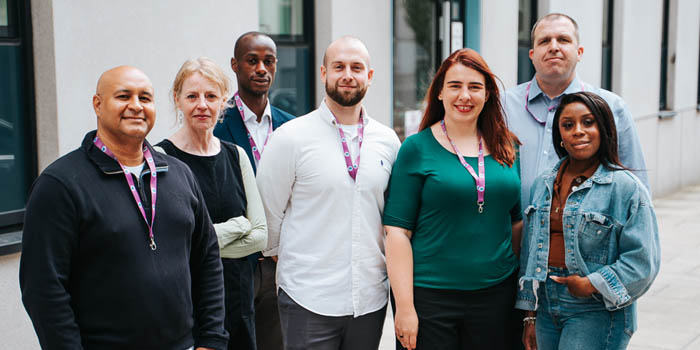GambleAware Sees More Problem Gamblers Reach Out for Help

The number of problem gamblers seeking treatment over the last calendar year increased, a new survey commissioned by GambleAware has revealed.
Problem Gamblers Reaching Out for Help More Often
GambleAware has revealed its latest GB Treatment and Support survey looking into problem gambling and consumer habits and how individuals respond to treatment options.
The NGO used data provided by YouGov and commissioned by GambleAware to see how efficient the proliferation of treatment options has been in addressing harmful gambling practices and helping those in need. This comes in the context of a new study that revealed that warning labels were hard to find on some casino gambling products in the UK.
Based on the study’s findings, GambleAware has flagged an increase in the number of problem gamblers over the past 12 months who have reached out for treatment, advice, or support during the period.
Figures from a previous study conducted in 2019 showed that the number of problem gamblers to have reached out for treatment was 54%, but as of 2020, this number increased to 63%, showing that awareness campaigns may be hitting a bull’s eye and resonating with their intended audiences. Commenting on these results, GambleAware CEO Zoë Osmond expressed confidence that treatment is working and awareness of such solutions was helping more people:
“It is encouraging to see a year-on-year increase in those classified as ‘problem gamblers’ seeking help, especially during the pandemic. These results will be used to help inform GambleAware’s new commissioning strategy as we continue our work to increase the provision of and access to services.”
Osmond similarly argued that the increase in the sample size allows GambleAware to better adjust existing services and seek how to better serve problem gamblers in collaboration with local authorities and health commissioners.
A Closer Look into a Bigger Sample
Drawing on the YouGov survey, around 2.4% of adults are considered problem gamblers, with the polling company looking into a larger sample of participants and final results broken down by region, age, gender, socio-economic and ethnic group available in April.
Other than reaching out, a higher number of problem gamblers have started treatment, with the numbers going from 43% to 53% between the 2019 and 2020 surveys. Self-help apps and tools have been another prevailing technological solution that has helped people resist temptation and address issues head-on, the latest survey revealed.
The survey took into consideration treatment, advice, and support options delivered to vulnerable individuals remotely due to the pandemic. Around 44% of respondents agreed that accessing help online was better than a face-to-face consultation, and 38% argued it was about the same.
Some Hurdles Still Exist
Problem gamblers who have not sought treatment, support, or advice remotely or around 18% of respondents argued that they felt online support would lack eye-to-eye contact and therefore not be worthwhile.
Some 16% of respondents said that they had no private space to go through the treatment and 14% added that they are sharing devices with others in their homes. The survey proves an interesting insight into not just how many people seek out help when they realize they have a problem but also how stakeholders can make such solutions more accessible.
GambleAware’s survey similarly focused on understanding why some people avoided treatment. For 22% of people, it was stigma they feared, and another 15% thought that the treatment, advice, or support would not be readily available. The good news is that at least 59% of all problem gamblers said that they were prepared to undertake some form of treatment.
Meanwhile, the UK Gambling Commission has reported a dip in gambling activity between January and February.
Stoyan holds over 8 years of esports and gambling writing experience under his belt and is specifically knowledgeable about developments within the online scene. He is a great asset to the GamblingNews.com team with his niche expertise and continual focus on providing our readers with articles that have a unique spin which differentiates us from the rest.














